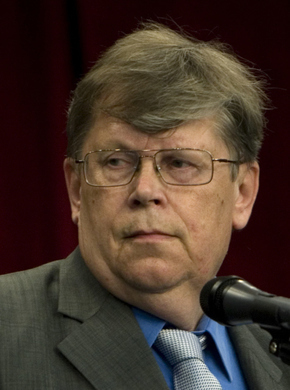Posted on : Oct.19,2018 14:44 KST
Modified on : Oct.19,2018 15:23 KST
 |
|
Former International Atomic Energy Agency (IAEA) deputy director-general Olli Heinonen
|
International nuclear experts say the term is nearly impossible to define
 |
|
Former International Atomic Energy Agency (IAEA) deputy director-general Olli Heinonen
|
The definition of “irreversible stage of denuclearization” is becoming a heated topic after South Korean President Moon Jae-in made remarks during his recent European tour calling for “further efforts to promote denuclearization by loosening UN sanctions once we have determined North Korea’s denuclearization has reached an irreversible stage.”
Neither the Blue House nor the Moon administration have yet offered a concrete explanation, while US nuclear experts have argued that the concept of “irreversible denuclearization” is impossible to define.
Voice of America quoted former International Atomic Energy Agency (IAEA) deputy director-general Olli Heinonen on Oct. 18 as saying two key measures would be needed to determine North Korea’s denuclearization had reached an “irreversible” stage. Specifically, it would require the overseas removal of all nuclear weapons from the North and the prior dismantling or disablement of facilities to produce highly enriched uranium, plutonium, and other nuclear materials, he said. Verification of these measures would also have to be included, he added.
Heinonen further said it would be impossible to conclude North Korea’s denuclearization had reached an “irreversible” stage even if it completed permanent dismantling and verification procedures for its nuclear facilities at Yongbyon. The claim is that because of the possibility that North Korea has at least one more enrichment facility outside of the Yongbyon complex, it could still produce highly enriched uranium even after the Yongbyon facility has been dismantled.
Because the precise scale of nuclear material in North Korea’s possession has not been established, measures beyond the Yongbyon facility’s dismantlement would be needed for denuclearization to reach an irreversible stage, Heinonen said.
Nuclear expert and Institute for Science and International Security (ISIS) president David Albright was reported by the same network as saying an “irreversible” stage of denuclearization was impossible to define. He too cited the lack of precise knowledge about the scale of North Korea’s nuclear weapons. Noting that dismantling and verification of the nuclear facilities at Yongbyon and elsewhere would represent major progress, he cautioned at the same time against overlooking the fact that North Korea still possesses dozens of nuclear weapons.
By Kim Ji-eun, staff reporter
Please direct comments or questions to [english@hani.co.kr]








